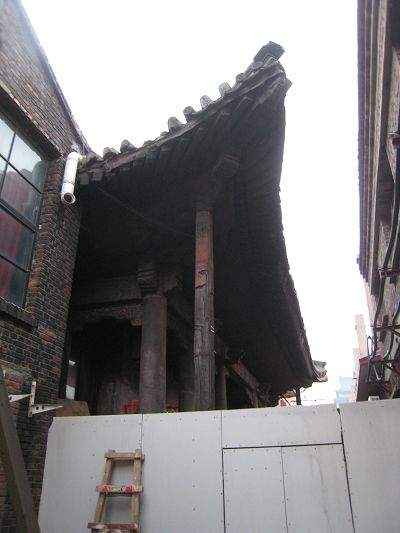Home of the original expat English teacher
|
|
|
Zhangwang Hutong was home to Reginald Johnston. |
Located beside the old Gulou main street, the historical Zhangwang Hutong traces its history back to the Yuan Dynasty (1279-1368), but its most famous inhabitant moved in much later, when the last emperor of China, Pu Yi, presented the courtyard at No. 19 Zhangwang Hutong to his tutor, Reginald Johnston.
The master's schoolmaster
Johnston, also known as Zhuang Shidun, was a Scot adept in Chinese language and culture, and he's probably the most culturally significant expat English teacher in China's history. In the early 20th century, China was experiencing a wave of information from the west. Languishing in the deep corner of the Forbidden City, Pu Yi was also on the move. After the failure of Zhang Xun's 1917 revolution to restore Qing feudalism, the court feared for its future and decided to hire Johnston as an English tutor for Pu Yi, in case he would need to leave China and go overseas someday.
From 1919 to 1924, Johnston instructed Pu Yi not only in English, but also in the cultural perspective of the Western world. As a teacher, his dedication went beyond that of most tutors. Upon noticing Pu Yi's myopic eyes, he managed to send a doctor into palace to fit him for a pair of glasses. For Pu Yi, who was "imprisoned" in the palace, Johnston was like a window to the outside world. In Pu Yi's autobiography, "The First Half of My Life" (also titled "From Emperor to Citizen"), he said that Johnston even inspired him to cut off his long hair (bianzi).
In return for his efforts, Pu Yi presented Johnston with huge rewards, including the big courtyard in No. 19 Zhangwang Hutong. (Though the residents of No. 15 claim Johnston lived there, not in No. 19. There's some controversy over it.) Wang Qin-gxiang, the researcher of Pu Yi's book, described how Johnston was carried on a sedan chair by eunuchs all the way to his place in this lane. Johnston taught Pu Yi for five years until general Feng Yuxiang expelled Pu Yi from the Forbidden City.
Zhang Zhigang, 53, has lived in this hutong for 40 years. "When I first moved here in 1969, No. 19 was like a big family's place — more spacious and tidy than today," Zhang said. "There were peach trees planted on the either side in front of his house." He said corridors of up to 2 meters wide were located on the either side for people to pass through from the front yard to the back. "This door was apparently a big siheyuan with up to three small courtyards," he said.
Now, the old living room in the middle yard is Zhang's living room and bedroom at the end of No.19. Although rumor says that Johnston might have lived in No.15, Zhang doesn't believe that. "I heard that No.15 was owned by a Chinese landlord when Johnston was still here," he said.
Today, Zhangwang Hutong's expat-heavy destiny continues, as it currently hosts a bar and hotel that entertain visitors from all over the world.
 0
0 








Go to Forum >>0 Comments